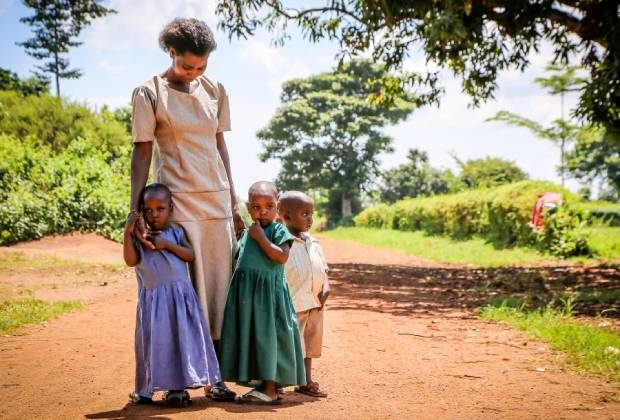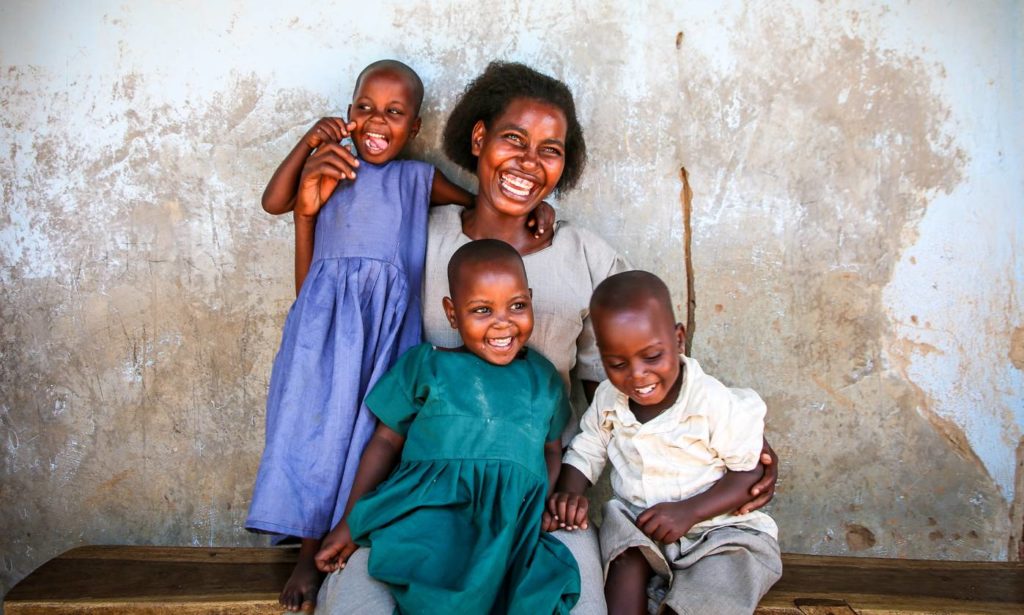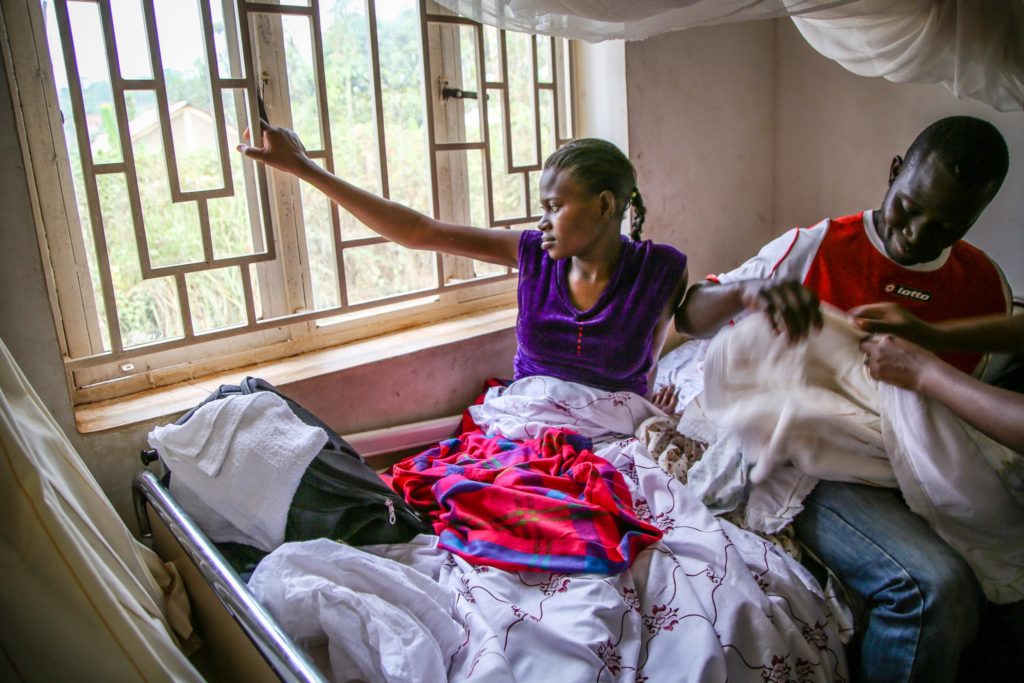
Annet, 32, and her triplets: Patience, Grace, and Samuel.
Photo|Helen Manson (Gospel Coalition)
I’m a New Zealand humanitarian photographer and storyteller living and working in Uganda.
I’m also a mom to three incredible kids (ages 2, 3, and 5). My work has taken me to 35 countries over the last decade, where I’ve seen everything from mothers saying their first hello to their babies, to witnessing their last goodbyes.
I’ve listened to moms tell stories of hope and joy, as they proudly describe reaching the point of being able to pay their children’s school fees. I’ve wept as they’ve shared harrowing stories of surviving war, rape, slavery, abuse, and the murder of loved ones.
Before I started doing humanitarian photography/storytelling, I was tempted to imagine that mothers in developing countries who endured horrific things “on the news” were fundamentally different from me. Maybe, somehow, they just don’t feel things like I do. They’re “used to it,” numbed by the ubiquitous presence of suffering. Maybe they expect less, care less, hope for less, want less, or need less. But as I’ve gotten to know moms all over the world, and captured them and their children with my camera, I’ve come to see that as different as our cultures and contexts might be, the universal gifts and challenges of motherhood unite us. There’s really no difference in what we want for our children; only in what we can give them.
I’ve met many mothers through my travel and my work, in some of our planet’s most difficult places. These moms are remarkable. Each has a story, and each bears the beautiful image of God in how they nurture, love, and sacrifice for their children.
As Christians, one of the ways we dignify people is simply by seeing them, bearing witness to who they are as precious image-bearers, even or especially in difficult places and situations. Photography helps us do this. As we approach Mother’s Day, we can celebrate the gift of mothers is by seeing them in their beauty and struggle.
Here are some photos that try to do that—dignifying and bearing witness to six remarkable moms I’ve been fortunate enough to photograph.
Annet

When Annet became pregnant she had no money for a scan, and she ended up going into labor at home.
She gave birth to Samuel in her house, alone. But after the baby came out,“my tummy looked like I hadn’t even given birth to a baby,” she said.
Sure enough, after her brother-in-law took her to a hospital on his motorbike, a midwife informed her she was going to have twins and needed to go to another hospital.
When she arrived at the new hospital, the doctor called her husband to let him know Annet was having not just twins, but triplets. She would need a C-section. The triplets were safely delivered, but their fatherdidn’t want anything to do with them. “In our culture, twins are a blessing, but triplets are a curse,” Annet said. “So my husband turned his phone off. He refused to pay the hospital bill or have anything further to do with us, so the doctor ended up calling the press.”
When Annet’s story went public, Compassion came to help. They paid her hospital bill and constructed a home for her and her triplets, who are now sponsored. Annet is grateful. “These children are a blessing!” she said.
Juliet

For the last 15 months I’ve been following the story of Juliet, from the final stages of her pregnancy to her daughter Christine’s first birthday.
Having not had the opportunity to go to school, Juliet met her husband, Edward, at a young age. They fell pregnant soon after, with little to no money to their name.
A member of a local church helped register them into the local Compassion program. Juliet gave birth, by herself, inside a local hospital after a nurse had unexpectedly gone off duty.
It has been beautiful to watch Juliet’s love for her daughter grow. “I am so much in love with my daughter,” she told me. “Maybe it’s because she’s my first born? I love my husband too, but he annoys me whereas she cannot annoy me.”
Baby Christine was recently given a sponsor, which means she’ll have a different life from her mother—starting with an education.
Juliet made me laugh when she said, “I’ve heard that white women don’t feel pain when they give birth? That you have schedules for napping, and you get mad if the baby doesn’t follow it!? I have heard you have an entire room where the babies sleep all by themselves and only baby things are in there.”
Continue Here
Via | The Gospel Coalition.

